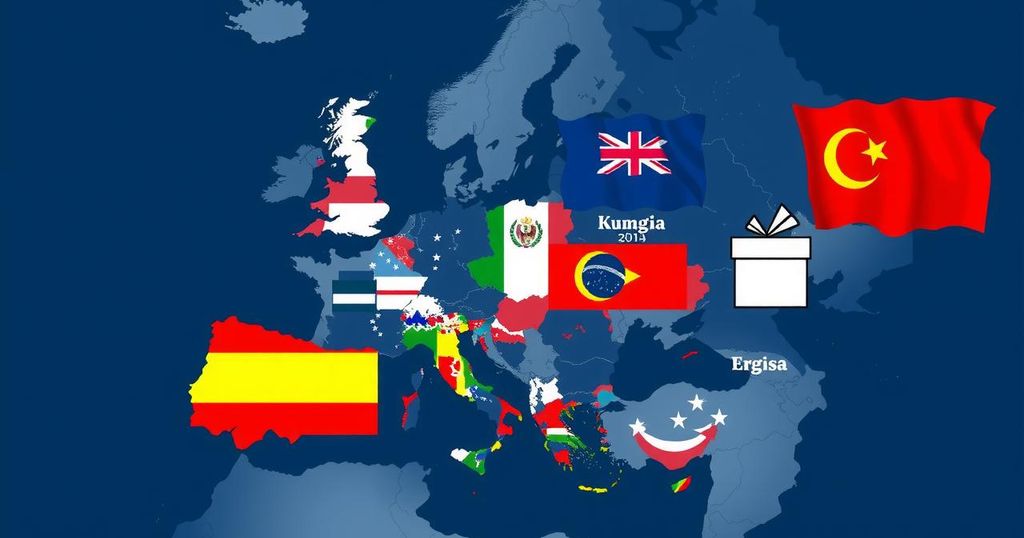The article reports on key global developments: The Netherlands implements strict migration policies amid rising asylum applications; Sudan witnesses a deadly attack escalating its ongoing conflict; South Koreans protest a court ruling related to same-sex partner benefits; China condemns a substantial US arms sale to Taiwan; and Bulgaria faces political challenges with elections leading to possible coalition hurdles.
On Friday, the Dutch nationalist government advanced stringent new migration policies in Parliament, which include enhanced border controls, the cessation of obligatory municipal placements for asylum seekers, and restrictions on family reunification. These measures have been adopted in response to the 51,000 asylum applications submitted within the past year and mirror increasing trends towards heightened migration controls observed in various European nations, including Italy and Sweden. In Sudan, an attack attributed to the Rapid Support Forces on Friday resulted in the unfortunate deaths of at least 124 individuals in Al-Sareeha village, with reports indicating over 200 injuries and 150 detentions. This incident marks a significant escalation in the ongoing conflict between the RSF and the Sudanese Armed Forces, prompting severe humanitarian repercussions and the displacement of millions. In South Korea, an extensive gathering of Christian protesters occurred in Seoul on Sunday, opposing a recent judicial decision that allows same-sex partners to receive spousal health benefits. Organizers claimed an attendance of over one million, whereas law enforcement estimated the crowd size to be 230,000, leading to disruptions in traffic throughout the city. Furthermore, China expressed vehement criticism on Saturday regarding a $2 billion arms sale to Taiwan, which is the 17th arms transaction under the Biden administration. Beijing asserted that this deal, which encompasses advanced air defense systems, poses a significant threat to China-US relations and jeopardizes peace and stability in the Taiwan Strait, vowing to implement countermeasures in defense of its sovereignty. Lastly, Bulgaria is bracing for political developments as exit polls indicate that Boyko Borisov’s GERB party is leading in the nation’s seventh election within a three-year span. However, the complexities of coalition formation persist, as the previous election in June culminated in a hung Parliament. This time around, the pro-Russian Vazrazhdane party did not meet expectations, whereas the Reformist PP-DB coalition has shown better performance, with final results anticipated on Monday.
This article presents recent significant developments across various global regions concerning migration, conflict, public demonstrations, international arms sales, and political elections. It highlights how European nations are tightening borders amid rising asylum applications, the escalating humanitarian crisis in Sudan due to armed conflict, social tensions in South Korea regarding LGBTQ+ rights, China’s assertive stance towards Taiwan amid US arms dealings, and the ongoing political instability in Bulgaria. These topics underscore critical humanitarian, social, geopolitical, and electoral dynamics in the current global landscape.
In summary, the article encapsulates pivotal issues affecting migration policies in the Netherlands, severe violence in Sudan, social governance matters in South Korea, contentious US-China relations over Taiwan, and the evolving political scene in Bulgaria. These developments reflect broader trends of political responsiveness to social challenges and international relations that merit close observation going forward.
Original Source: www.gzeromedia.com







